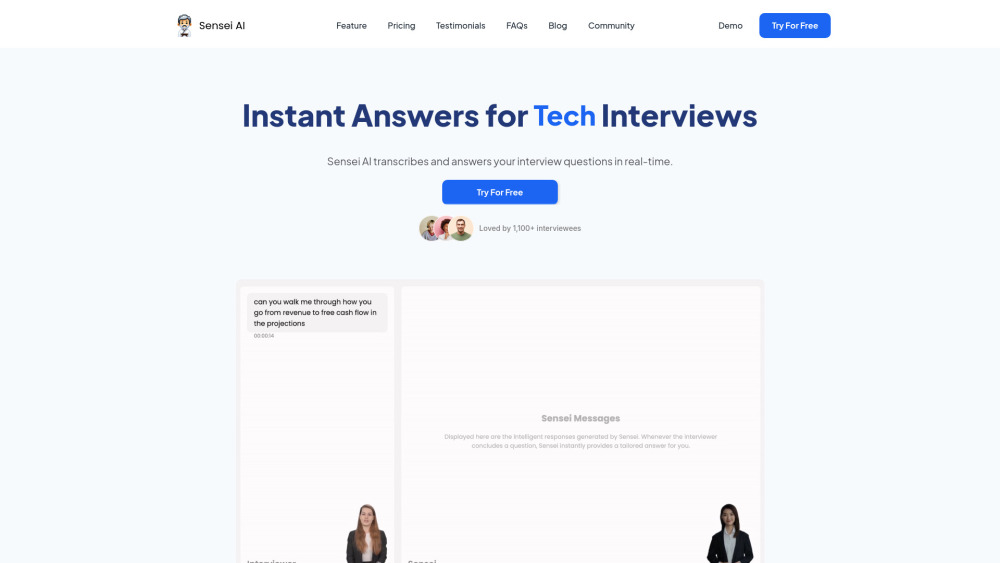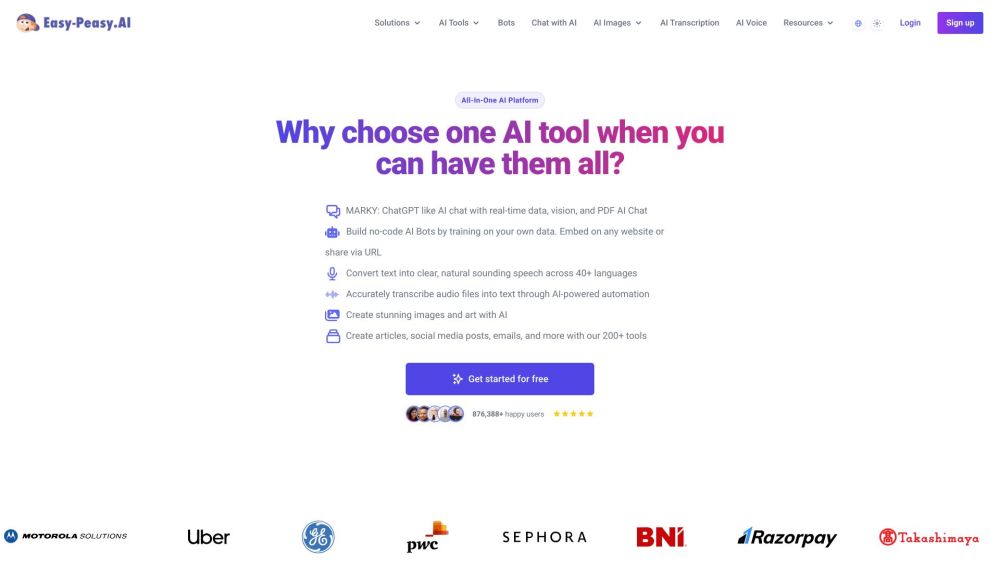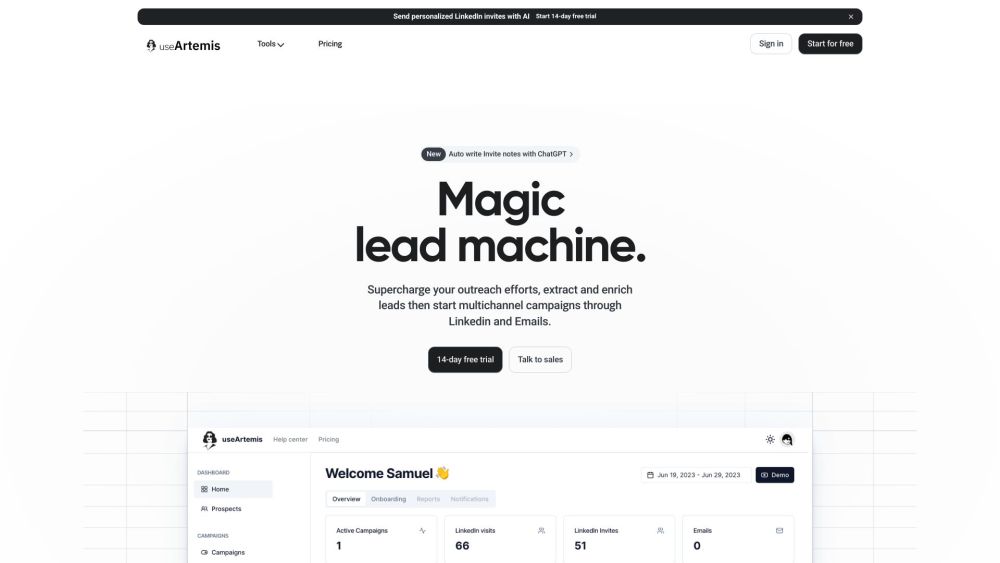Google Researchers Can Develop an AI That Mirrors Your Thinking After Just Two Hours of Conversation
Most people like

In today's competitive job market, standing out in interviews is crucial for landing your dream position. Enter the AI-Powered Interview Copilot—a revolutionary tool designed to enhance your interview skills and boost your confidence. With personalized coaching, real-time feedback, and tailored practice questions, this innovative solution helps job seekers perform at their best. Discover how this technology can transform your interview preparation and pave the way for career success.

Easy-Peasy.AI is an innovative AI tool designed to help users create original content quickly and enhance their writing skills effectively. With its user-friendly features, this powerful resource makes content creation effortless for everyone.

Intellecs.AI streamlines the process of extracting information, creating summaries, and answering questions from PDF documents efficiently.
Find AI tools in YBX



